Tag: Dementia Care
Articles dealing with caregiver tips for patients with various types of dementia.
Articles dealing with caregiver tips for patients with various types of dementia.

Dementia is a word we use to describe a significant change in the brain that makes it hard for people to remember things, think clearly, make decisions, or even control their emotions. It’s like a fog that slowly creeps in, affecting how a person thinks, feels, and lives daily. It’s not just one disease but a group of symptoms that can be caused by different diseases, including Parkinson’s and Alzheimer’s.
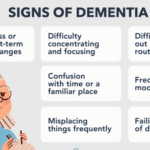
Learn to recognize early dementia signs and explore care options, including hospice. This guide offers insights into dementia, practical care tips, and when to seek professional help.

Caring for a loved one with dementia in rural areas can be challenging when local care facility options are limited. This guide explores alternatives, such as contacting organizations like the Alzheimer's Association, considering different facility types (adult day care, long-term care, respite care, memory care), seeking financial assistance, evaluating hospice eligibility, and assessing life plan/continuing care communities. It also addresses the legal and ethical implications of using hospitals as a last resort.
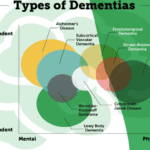
This article summarizes the twelve known types of dementia, which are the most common and well-studied forms of this condition. You will learn about the signs and symptoms of each type, how they are diagnosed, what causes them, and how they are treated. This article is intended for family members and caregivers of people with dementia who may want to understand more about the condition and how to support their loved ones.

Explore the complex world of dementia-related aggression and learn how to identify its underlying causes. This comprehensive guide offers insights into medication-related issues, pain management, and non-pharmacological interventions. Discover compassionate care strategies to support patients and caregivers on this challenging journey.

This article provides a compassionate guide for families and caregivers of individuals with dementia. It aims to offer insight into the progression of dementia and how to recognize when it may be time to consider hospice care. This article seeks to empower you with knowledge and understanding so you can make informed decisions that honor the dignity and comfort of your loved one.
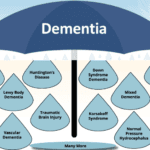
This article is like a flashlight in the dark. It’s here to shine a light on the path ahead, even when we don’t have all the answers. We’ll talk about how dementia can affect people differently and share some common signs that can help you guess what stage your loved one might be in.
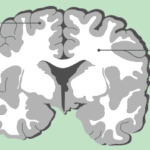
Discover the essentials of white matter disease, its impact on brain health, and how to support affected loved ones. This comprehensive guide offers insights into symptoms, diagnosis, treatment options, and practical tips for caregivers, empowering families to navigate this challenging condition with knowledge and compassion.
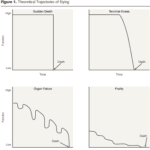
Have you ever wondered how different illnesses affect our lives and deaths? How do we cope with the uncertainty and unpredictability of our health? How do we plan for our future and make the best decisions for ourselves and our loved ones?
In this article, we will summarize and discuss the main points and findings of the paper and explore how they relate to our own lives and deaths. We will also provide practical and actionable suggestions for you to cope with and plan for your and your loved ones’ trajectories. We aim to help you understand the different types of illness trajectories, how they affect our lives and deaths, and how we can prepare for them.

Dementia is a complex and challenging condition that affects millions of individuals, often requiring specialized care. When it comes to supporting a loved one with dementia, understanding the types of healthcare providers available is essential. Each specialist brings a unique set of skills and expertise to the table. In this article, we will delve into the various types of healthcare providers for dementia and help you understand when to consider one specialist over another.

This article discusses the importance of quarterly medication reconciliation for terminal patients and their families. It explains the benefits, such as improving patient safety, quality of life, symptom management, and the challenges and solutions. It also addresses the need to re-evaluate certain medications, like donepezil and memantine, for patients with dementia as their disease progresses.
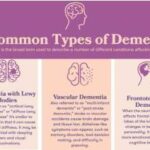
Explore the five most common types of dementia: Alzheimer's, Vascular, Lewy Body, Frontotemporal, and Mixed. Learn about their unique characteristics, symptoms, and progression. Understanding these differences is crucial for proper diagnosis, treatment, and care of individuals affected by dementia.

Delve into the world of blood-based biomarkers for dementia detection. This article examines the science behind these tests, their potential to revolutionize early diagnosis, and the complex ethical considerations surrounding their use. Discover how these tests might shape the future of Alzheimer's care and research.

Mixed dementia combines symptoms of multiple types of dementia, presenting unique challenges for patients and caregivers. This article explores the complexities of mixed dementia, its symptoms, diagnosis, and treatment options. Learn practical tips for providing compassionate care and support to loved ones affected by this condition.
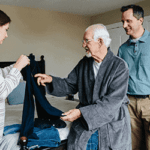
Explore practical solutions for managing disappearing clothing in dementia care. Learn about iron-on name labels, simplified clothing choices, and the importance of family-facility collaboration. This guide offers practical tips to ensure your loved one with dementia always has the right clothes, reducing stress for patients and caregivers.
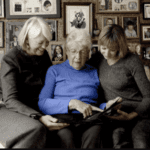
Dementia affects memory, thinking, and behavior, presenting challenges for patients and caregivers. This article discusses the best products for managing these challenges, enhancing quality of life for those with dementia.

Explore the Dementia Care Essentials book series, a comprehensive collection of nine guides addressing vital aspects of dementia care. From managing hallucinations to optimizing nutrition, these books provide invaluable insights for caregivers, healthcare professionals, and families navigating the challenges of dementia

Discover how the GUIDE model can be applied in hospice and palliative care, offering improved support for dementia patients and their caregivers. Learn best practices and implementation strategies.

Discover the commonalities between dementia and autism spectrum disorders (ASD), crucial for caregivers navigating symptoms. Access support resources for comprehensive care.

Discover essential insights and practical advice for family members and caregivers of individuals with traumatic brain injury, focusing on understanding, supporting, and managing challenges effectively.

Do you worry about a loved one's memory issues or odd behavior? Learn the key differences between senility and dementia, their symptoms, causes, and ways to manage or prevent them. Understanding these conditions can help you offer better support and care for those affected.
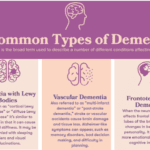
Dementia encompasses various brain disorders affecting memory, thinking, and behavior. This comprehensive guide delves into the five most common types: Alzheimer's, Vascular, Mixed, Lewy Body, and Frontotemporal Dementia. Gain insights into their distinct symptoms, underlying causes, diagnostic methods, and tailored care approaches to support individuals and caregivers navigating these challenging conditions.

This article will give you more knowledge, confidence, and comfort in dealing with dementia. You will also learn how to connect with people who share your experiences and challenges and can offer you emotional, practical, and informational support. You will realize that you are not alone and can make a difference in your loved one’s life.

Understanding vision changes in dementia is vital for caregivers. Learn how dementia affects vision and find practical tips to support your loved one, ensuring their comfort and safety.